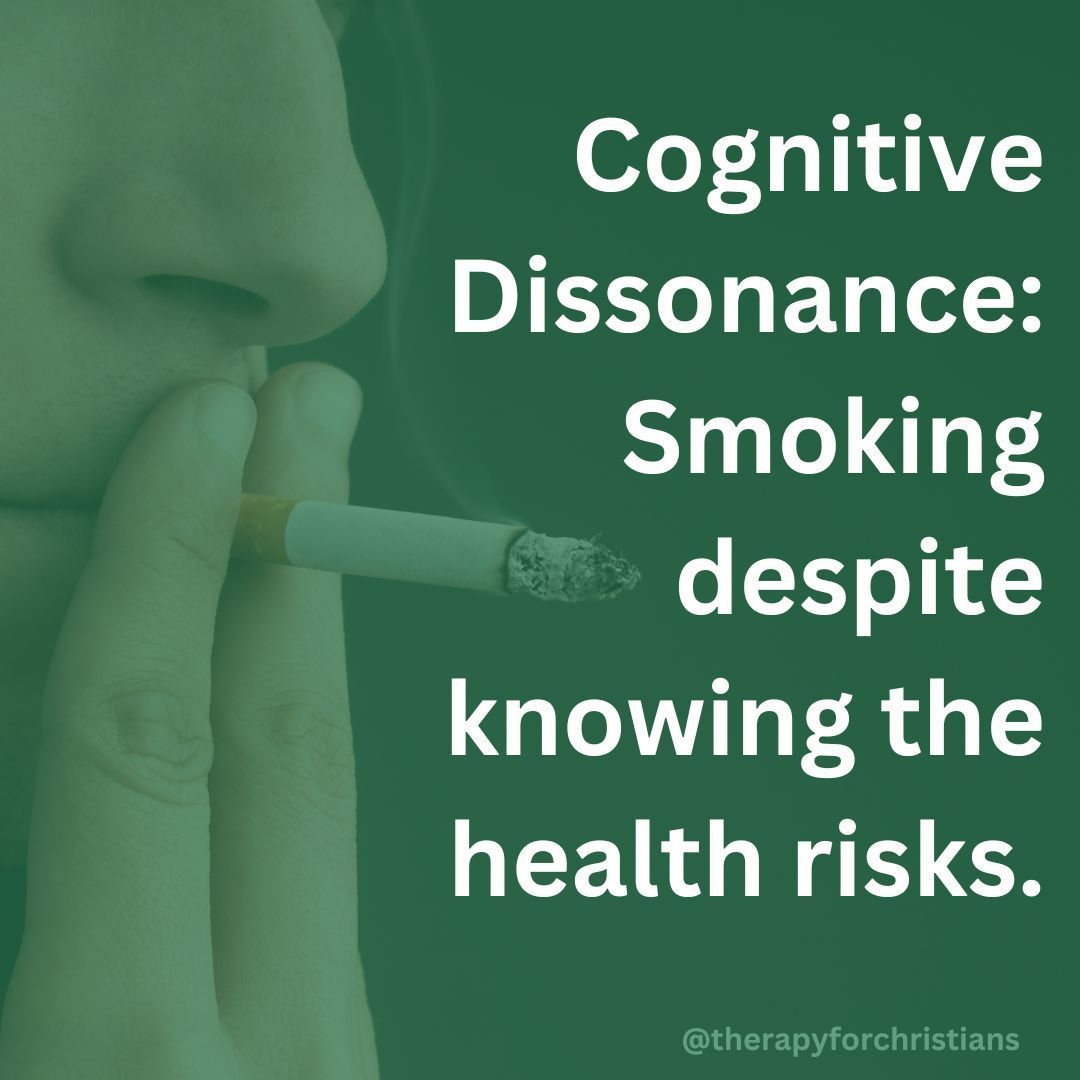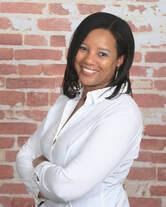
![]()
Have you ever felt like you were lost in a maze of conflicting beliefs? You are not alone.
In the complex landscape of the human mind, where beliefs and actions converge, a psychological phenomenon known as cognitive dissonance comes to light. This phenomenon revolves around the discomfort that occurs when our deeply held convictions clash with our actual behaviors. It's like an internal tug-of-war that challenges our emotional balance.
In this article, we’ll be exploring the ins and outs of cognitive dissonance. We will navigate its complexities, uncover its underlying theory, identify its signs, and delve into the emotional experiences it brings about. We'll also explore the various types of cognitive dissonance that can arise in our lives and the potential ways we can navigate through them.
So, if you’re ready to learn more about cognitive dissonance and how it affects our lives, keep reading.
What is Cognitive Dissonance Theory?
Cognitive Dissonance Theory is a theory that was crafted by American psychologist Leon Festinger.
The theory of cognitive dissonance helps us understand a common Like this content on Facebook human experience: the discomfort we feel when our beliefs and actions don't match up. Imagine believing something strongly but then doing the opposite – that contradiction can create an uncomfortable feeling inside us.
Like this content on Facebook human experience: the discomfort we feel when our beliefs and actions don't match up. Imagine believing something strongly but then doing the opposite – that contradiction can create an uncomfortable feeling inside us.
As we delve into this concept, we find that aligning our beliefs and actions has a phenomenal effect. It's like putting the pieces of a puzzle together and watching a transformation happen within us.
Essentially, cognitive dissonance theory helps explain why conflicting beliefs or actions can create mental tension as well as how people try to reduce dissonance.
Signs of Cognitive Dissonance?
Cognitive dissonance is not directly detectable, but it does present itself through a myriad of signs that manifest in one's behavior and emotions. While these signs can vary, they all stem from the internal struggle between conflicting beliefs and actions.
While identifying the exact signs of cognitive dissonance can be challenging, people who struggle with it often exhibit defense mechanisms such as avoidance, delegitimization, and limiting impact to cope with the discomfort. For example, they might avoid thinking about the conflicting ideas or come up with reasons to explain the differences. These actions are like ways of handling the uncomfortable feeling that comes from having contradictory thoughts and behaviors.
How Cognitive Dissonance Feels
The emotional experience of cognitive dissonance is marked by an unsettling sense of internal conflict. This mental discomfort can manifest as stress, guilt, anxiety, or a general sense of unease.
Experiencing cognitive dissonance can be emotionally distressing but it's the emotional turmoil that motivates change. It's a catalyst for self-reflection, and an impetus for growth. Embracing this emotional storm can lead us to calmer waters of alignment and self-discovery.
The dissonance between our beliefs and actions creates a psychological tension that motivates us to take action and move toward dissonance reduction. What Are the 5 Common Types of Cognitive Dissonance?
What Are the 5 Common Types of Cognitive Dissonance?
There are 5 common types of cognitive dissonance, these five include:
Belief-Action Dissonance: This is when one’s actions contradict their existing beliefs.
Choice-Choice Dissonance: This is when a person has to choose between two conflicting options.
Induced Compliance Dissonance: This occurs when people engage in behavior contrary to their actual beliefs due to social pressure.
Effort Justification Dissonance: This involves rationalizing the effort put into a task or action that contradicts personal beliefs.
New Information Dissonance: This is when new information challenges existing beliefs, causing discomfort and the need to reconcile the inconsistencies with the new beliefs.

Examples of Cognitive Dissonance
Cognitive dissonance can take on various forms, each influenced by the specific context and conflicting beliefs or attitudes at play. From the choice to smoke despite the knowledge of health risks to the paradox of people who identify as animal lovers eating meat, real-world examples abound.
Here are a few categories that illustrate cognitive dissonance best:
Health Risks and Smoking: When people smoke despite knowing it could cause lung cancer.
The Meat Paradox: When animal lovers are eating animals despite concerns about animal welfare.
Gender Equality and Household Chores: When someone advocates gender equality but expects one gender to manage most household tasks.
Environmental Awareness and Fast Fashion: When one recognizes the environmental impact of fast fashion but still supports it through purchases.
Causes of Cognitive Dissonance
Cognitive dissonance can arise from a multitude of factors, each contributing to the intricate interplay between our beliefs and actions. These causes shed light on the complexities of human decision-making and the internal struggles we face:
Societal Pressures and Forced Compliance: Society often imposes norms that might not align with our personal beliefs. Adhering to these norms while holding differing opinions can give rise to cognitive dissonance. This occurs when we find ourselves conforming to external expectations despite our inner convictions. For instance, agreeing with a decision at work that clashes with our ethical standpoint.
Limited Choices and Decision-Making: In situations where options are limited, making a choice can lead to a sense of discord within us. This stems from the challenge of aligning our beliefs with the available options. The conflict arises when we're compelled to choose something that doesn't completely resonate with our values. A good example is someone who can convince themself to take a job that doesn't align with our values due to the scarcity of opportunities.
Addiction and Behavioral Conflicts: The grip of addiction can also intensify cognitive dissonance, making it arduous to reconcile behavior with values. Most people tend to break free from harmful behaviors but find themselves trapped due to addiction's stronghold. This struggle amplifies the internal battle between beliefs and actions, worsening the dissonance and the way the person feels.
Conflicting Values and Attitudes: Internal conflicts arise when we hold beliefs that are at odds with each other. The dissonance emerges from the clash between these conflicting values. It becomes challenging to maintain consistent behavior when our beliefs pull us in different directions. For instance, valuing both environmental sustainability and convenience-driven behaviors.
External Influence and Social Media: The era of social media introduces new layers of cognitive dissonance. Exposure to diverse opinions and ideals can trigger internal conflicts. The act of comparing ourselves to others, often spurred by social media platforms, can lead to discrepancies between our beliefs and actions. This struggle might be particularly pronounced when attempting to fit in or project a certain image.
Complex Moral Dilemmas: Navigating intricate moral choices can lead to cognitive dissonance. When faced with decisions involving complex ethical considerations, we experience internal tension. Making a choice between two morally complex options can create a dissonance between our convictions and our actions. An example might involve deciding whether to reveal an uncomfortable truth that could potentially hurt someone.
Understanding these various things that can create cognitive dissonance helps us navigate human and social psychology with empathy and self-awareness. By identifying the sources of our internal conflicts, we can work towards ways to resolve cognitive dissonance, thus bringing our own beliefs and actions into harmony and fostering a balanced more authentic state of mind.
What does the Bible Say about Cognitive Dissonance
While the term "cognitive dissonance" may not appear in the Bible, verses such as James 1:8 highlight the concept of inner conflict and its consequences.
James 1:8 (New International Version): "Such a person is double-minded and unstable in all they do."
This verse highlights the idea of being "double-minded," which can be seen as a form of cognitive dissonance where a person is torn between conflicting thoughts or actions. The verse suggests that such inner conflict can lead to instability in one's actions and decisions in their everyday life.
Additionally, you might find other passages in the Bible that discuss the importance of changing one's beliefs and actions, resolving inner turmoil, and seeking wisdom to navigate through conflicting thoughts. Keep in mind that interpreting these verses in the context of cognitive dissonance involves a certain level of metaphorical interpretation, as the psychological concept itself was not developed at that time,
 Pin It!
Pin It!
How to Overcome Cognitive dissonance
Resolving cognitive dissonance isn't about untangling a knot; it's about finding balance between our thoughts and actions. Here's how to navigate this journey of alignment and cognitive consistency:
1. Self-Awareness: Recognize When It Happens
Pay attention to moments when your beliefs clash with your actions.
Acknowledge the mental conflict this dissonance creates.
2. Introspection: Dig Deeper into the Conflict
Take time to reflect on why the dissonance or conflicting cognition exists.
Identify the thoughts and behaviors that are causing the clash.
3. Willingness to Confront: Embrace the Discomfort
Accept that facing discomfort is the first step toward resolution and choose to feel discomfort.
Understand that growth often involves grappling with your contradictory beliefs.
4. Changing Behavior: Align Actions with Beliefs
If your behavior contradicts your beliefs, make conscious changes.
Act in ways that reflect your true convictions, even if it requires effort.
5. Altering Beliefs: Adapt Your Mindset
If your beliefs need adjustment, be open to new perspectives and changing existing beliefs.
Seek information that supports your desired alignment.
6. Reframing Perceptions: Find New Perspectives
Sometimes, an attitude change and a new perspective can bridge the gap.
Reinterpret situations in a way that harmonizes your thoughts and actions.
7. Restoration of Consistency: Achieve Harmony
The ultimate goal is to find harmony between beliefs and actions.
Strive to reduce cognitive dissonance by creating a congruent and authentic way of living.
8. Reducing Emotional Discomfort: Easing the Strain
As you align your thoughts and behaviors, the emotional discomfort and negative feelings will reduce.
Experience relief as your dissonant beliefs dissipates.
Remember, overcoming cognitive dissonance is a journey, not a destination. It's about growth, self-discovery, and finding inner peace through alignment. As you navigate this path, be patient with yourself and embrace the process of becoming more consistent and true to your beliefs.
Final Thoughts on Cognitive dissonance
Imagine a song played with the wrong notes – that's how it feels when our thoughts and behaviors don't align. This is what cognitive dissonance is, but it's not a dead end; it's an invitation to grow.
In this article, we discovered that the effects of cognitive dissonance isn't passive. It's like adjusting the strings of an instrument to create harmony. It motivates people to go on a journey of self-discovery and improvement.
See, life will be full of moments where your thoughts and actions don't match up. But these moments hold potential for change. The discomfort caused in these moments enable you to acknowledge the times when your thoughts and actions don't sync and use that awareness to create positive change.
So, as you stand here, at the junction of your beliefs and actions, choose to embrace this opportunity. Choose to experience cognitive dissonance with an open heart and a curious mind. By doing so, you will find greater alignment within yourself and create a more harmonious life.
Before you leave, we would appreciate it if you helped us spread the word by sharing, tweeting, pinning, etc. this post.
About the Author:

Corine Williams, Ph.D. is Clinical Psychologist that is currently seeing clients in the States of Maryland, New Jersey, and New York. You can find out more about her practice by visiting www.therapyforchristians.com/corinewilliams. In addition to providing individual therapy, Dr. Williams is also passionate about writing books and designing merchandise that educate, uplift, and normalize mental health subject in the Christian community. You can find out more about her at www.booksbycorine.com or by visiting her amazon profile here: https://www.amazon.com/Corine-Hyman/e/B00AWZ5FL2
Help us increase mental health awareness in the Christian community by donating through our paypal link here: www.paypal.com/therapyforchristians, joining our mailing list by clicking below, or join our provider list here: Provider listing
Disclaimer: the information, including but not limited to, text, graphics, images and other material contained on this article are for informational purposes only. No material on this site is intended to be a substitute for professional medical advice, diagnosis or treatment. If you are looking for a Christian counselor near you, please check out our directory located here: Christians Therapist Near Me
.png)



.jpg)








